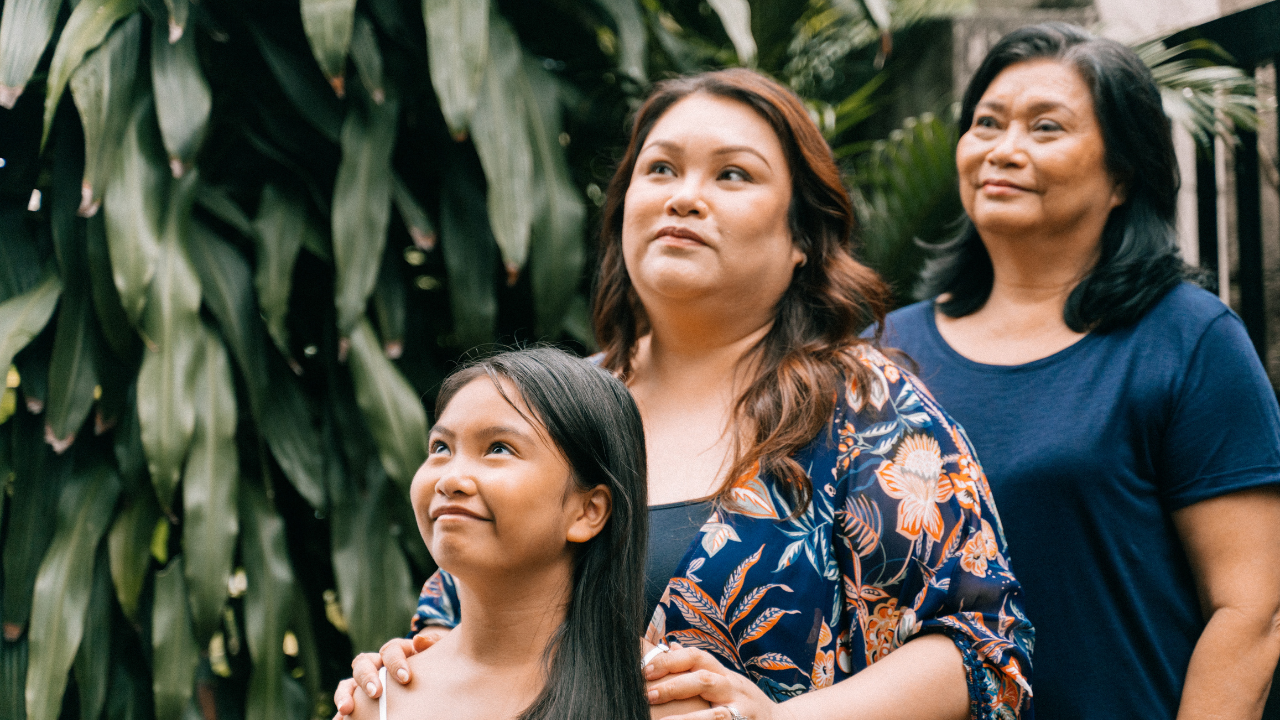Generational Parenting: How Your Roots Influence Raising Teens

Written by the CultivaTeen Roots Team
7-minute read
Whether you had a wonderful childhood and want to emulate that experience for your children, or you want to be the opposite of the parents you had, the way you parent your teen is connected to how you were raised. By taking time and space to reflect on your upbringing and family of origin, you have the opportunity to recognize unconscious patterns or behaviors that aren't aligned with your family of creation’s values, celebrate parenting wins, and address unresolved feelings about your childhood or relationship with your parents. So let’s dive into how your childhood family dynamics can influence parenting teens.
Parenting Styles
Parenting is often categorized into four styles, which reflect the different ways parents approach raising and nurturing their children:
- Authoritarian: Low warmth and high control
- Authoritative: High warmth and high control
- Permissive: High warmth, low control
- Uninvolved: Low warmth and low control
Studies indicate that an individual’s parenting style is often influenced by the relationship they had with their own parents during childhood. For example, a parent who experienced harsh discipline as a child may adopt an authoritarian approach with their teen, relying more on control and punishment. On the other hand, they may swing in the opposite direction and become excessively permissive, so their child does not have to experience the harsh and rigid rules they did.
Emotional Availability
Parents who were raised in homes with emotionally supportive caregivers are more likely to provide the same experience for their children, creating a safe and nurturing environment that fosters connection and open communication. On the other hand, parents who had emotionally distant or neglectful relationships with their parents may find it difficult to connect emotionally with their teens, through no fault of their own. When your emotional needs go unmet by your primary caregiver, you don’t receive modeling for how to provide these needs for someone else. Furthermore, you may struggle to engage in emotional closeness because it feels unsafe to be vulnerable. If this is you, take a deep breath and remind yourself you are a good parent. Building your capacity for emotional availability with your teen is possible with reflection and intentional effort.
Family System
Family systems refer to how members of a family unit engage with each other. The family system you were raised in impacts how you parent your children. Maybe you grew up in a family that had defined roles and clear communication- this may allow you to naturally build an environment for your teen that similarly supports structure and connection. Or perhaps your family system was void of boundaries and full of chaos, making it difficult for you to set limits and navigate conflict in your own family. When you can reflect on the dynamics of your original family system, you can be intentional about creating the environment you want your teens to experience.
Environmental Impacts
The environment and circumstances of your childhood shape who you become- whether you experienced childhood trauma, had divorced parents, were housing insecure, lived in a multigenerational household, had immigrant parents, or had access to all of the resources in the world. Taking these factors into account as you reflect on how you show up in your family of creation will allow you to exercise self-compassion towards the things you could not control as a child and empower you to be intentional about the things you can control as a parent.
Practical Tips for Parents
- Practice Reflection: As caregivers and parents to teens, one of the most valuable steps you can take to avoid repeating unhealthy patterns is to work on developing self-awareness. Research from the Journal of Family Psychology emphasizes the importance of recognizing these patterns, as it allows parents to make conscious efforts to create healthier relationships with their children.
- Open Communication: Having open communication with your teen creates a safe space for them to share their thoughts, feelings, and opinions. If you grew up in a home with strained or dysfunctional communication, this approach might feel uncomfortable at first. However, engaging in consistent, supportive, and nonjudgmental dialogue will allow you and your teen to strengthen and maintain a solid connection through the ups and downs of adolescence.
- It’s ok to ask for help: Reflecting on childhood experiences can often bring up uncomfortable and difficult emotions. If you find yourself repeating unhealthy relational patterns or struggling to manage your own needs, it may be helpful to consider therapy. Therapy offers a safe space to explore how your family dynamics influence your parenting, both individually and as a family unit. Extra support can provide you with tools to address unresolved issues and reflect on your past in a comfortable, supportive environment.
- Be Mindful of Your Teen's Developmental Stage & Remain Flexible: Teens are experiencing fast and furious brain changes during adolescence. Your teen’s development is often marked by intense mood swings, independence-seeking behaviors, and identity exploration. Keeping this in mind allows you to respond to tricky situations with understanding and compassion.
- Model Healthy Relationships: Your teen is watching your every move to see how you show up in relationships. Modeling respectful and supportive relationships with others (including your partner, friends, and colleagues) is valuable because your teen is learning how to interact with the world around them. By modeling healthy relationships, you provide them with a blueprint for the relationships in their lives.
Final Thoughts
Your upbringing influences your parenting style in a variety of ways. Making a conscious effort to develop healthy family dynamics will help you create a positive, safe, and trusting environment for your teen. Our course, Making AdoleSense, provides parents and caregivers of teens with practical guidance and reflective activities designed to deepen their understanding of how their own childhood experiences influence their parenting approaches.
References:
- Journal of Family Psychology (2018). "Parenting Styles and Their Impact on Adolescents."
- Developmental Psychology (2019). "The Role of Emotional Availability in Parenting."
- American Psychological Association (2021). "Impact of Parental Conflict on Teen Behavior."
Making AdoleSense
Our foundational course has officially launched! Our course includes 25 multi-faceted videos, an E-book, and over two dozen handouts & activities to support deep learning and connection between you and the teen in your life.
Stay connected with news and updates!
Join our mailing list to receive the latest news and updates from our team.
Don't worry, your information will not be shared.
We hate SPAM. We will never sell your information, for any reason.
